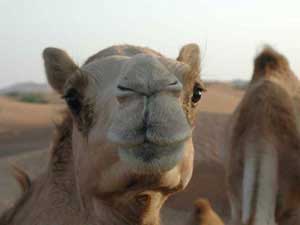Abu Dhabi studies ryegrass use in camel feed

The Abu Dhabi Food Control Authority (ADFCA) said it has launched a research project to study the physiological and pathological effects of fungal Ryegrass feed in camels funded and supported by Dahraa Agricultural Company.
The research project is in collaboration with the Faculty of Food and Agriculture the UAE University and the American University of Oregon.
The project is part of supporting food safety initiative for Abu Dhabi and aims to provide feed with excellent specifications that does not have a negative impact on the health and productivity of camels.
The project includes a study of the physiological and pathological effects of internal fungal feed in camels produced by a substance contained in ryegrass feed.
Two phase project
Mohammad Jalal Al Reyaysa, the director of communication and community service at ADFCA said the research will be implemented in two phases.
‘The first phase includes determining the trial dose of internal fungal Lolitrem B and the Ergovaline on feed provided to camels that are not pregnant and are currently living in the environmental condition of the emirate.
Three different trial doses of Ergovaline will be tested 300, 500 and 800 and three from the Lolitrem B 500, 1000, and 2000 respectively.’
The second phase will be the study of the dose with the least impact on pregnant camels all based on the results obtained from the first phase.
“We will also be measuring the concentration fungal pathogenesis of internal feed in urine, camel’s blood using advanced technologies that provide accurate measurement,” Al Reyaysa said.
“This research project is one of the most important projects adopted by the ADFCA’s management of research and development in order to ensure animal feed provided to animals are healthy with an economic benefit that contributes to the growth and development of the livestock sector in the emirate,” he added.











